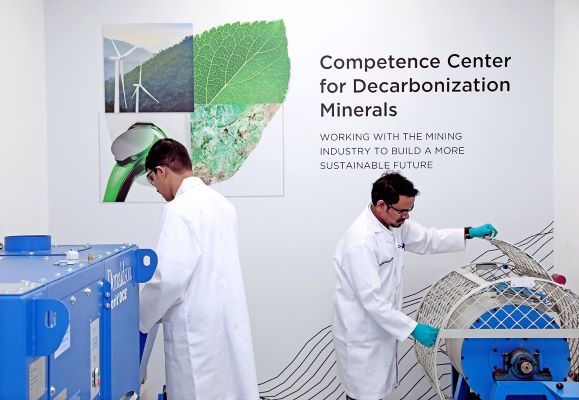The company's Competence Center for Decarbonization Minerals in Dubai help to improve society's decarbonization efforts

Mining has always been at the heart of progress. After all, it is the source of raw materials for a wide range of industries, from transportation and infrastructure to construction, and even agriculture. The resources humanity extracts from the Earth have, throughout history, helped shape our way of life – from the Bronze Age to our digital Silicon Age. The same will be true for the coming age of decarbonization. That is because most key technologies to lower emissions rely heavily on metals, from rare earths in wind turbines and solar panels to lithium and copper for electric cars and battery storage. To support the energy transition, the mining industry is also focusing on improving its own sustainability practices.
We do our part to help improve our society's decarbonization efforts, says Suresh Raju, who is a metallurgist with two decades of experience. He runs Clariant's new global Competence Center for Decarbonization Minerals (CCDM) in Dubai. The work he and his fellow chemists and metallurgists are doing for the mining industry can positively impact the world’s mobility transition.
In a 2020 report, the World Bank highlighted 17 commodities that will be essential for the clean energy transition, stating that »a low-carbon future will be very mineral intensive because clean energy technologies need more materials than fossil-fuel-based electricity generation technologies.
According to their estimates, energy technologies alone will use in 2050 close to five times as much graphite, lithium, and cobalt as the world produced in 2018. A greener society will also need significantly more vanadium, indium, nickel, aluminum, and other metals. An electric car alone requires, on average, 60 kg of lithium, 10 kg of cobalt, and more than 80 kg of copper, about six times as much copper as a conventional car.
With increased urgency comes a quickening demand for these decarbonization minerals: According to an updated report by the International Energy Agency (IEA), »an even faster transition, to hit net-zero globally by 2050 would require six times more mineral inputs in 2040 than used today.
Meanwhile, many mining operations are already dealing with dwindling deposits and decreasing ore grades. The industry needs more efficient ways of providing the world with these important minerals. »The mining industry has spent decades or even centuries improving its extraction processes for the likes of iron and copper,
Suresh explains. “It's a very different picture for the newly sought-after materials such as cobalt and lithium. Unfortunately, we do not have that kind of time. The necessary ramp-up in production requires the industry to improve and learn much faster.
Last year Clariant established its Competence Center for Decarbonization Minerals (CCDM) at the Dubai Science Park in Dubai, United Arab Emirates (UAE). This laboratory is designed to meet the increasing global demand for efficient solutions to process decarbonization minerals.
Subscribe to our newsletter & stay updated.